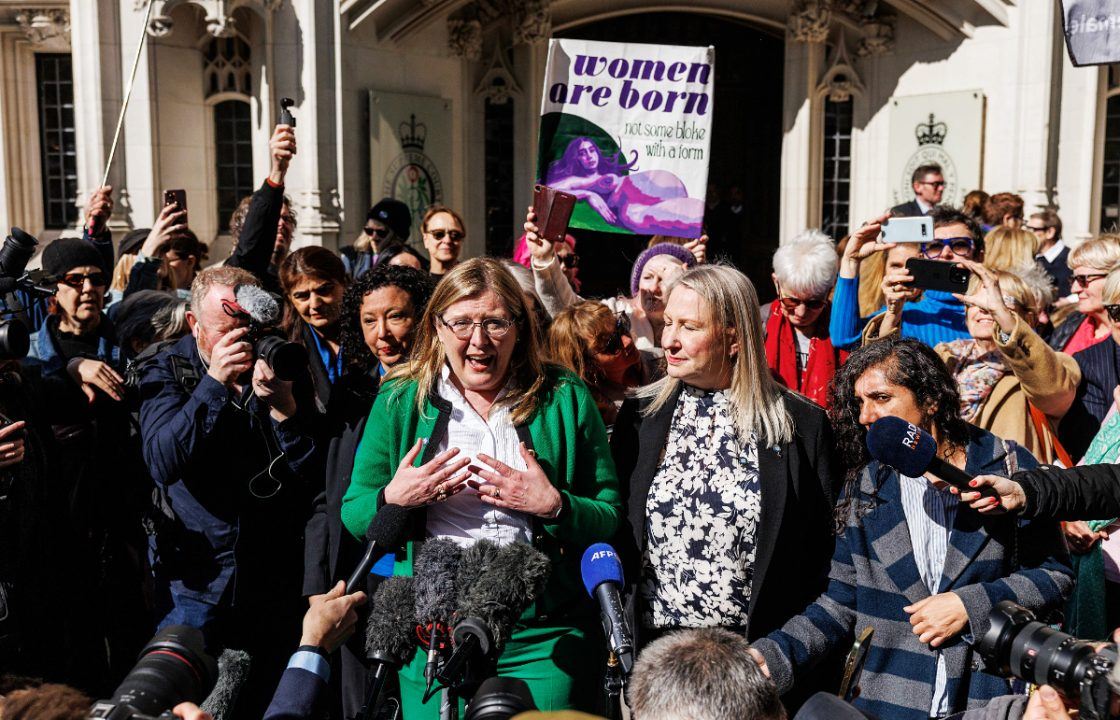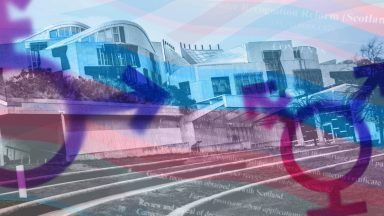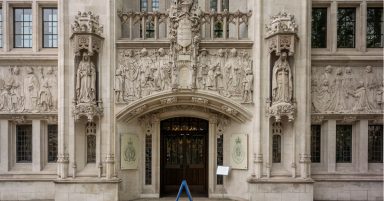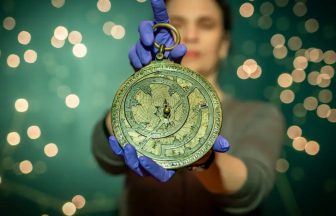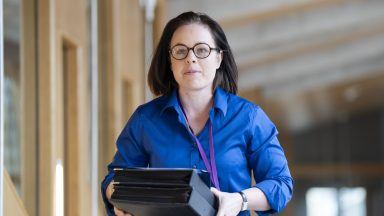Key Points
-
 The UK Supreme Court has ruled that the legal definition of a woman refers to biological sex
The UK Supreme Court has ruled that the legal definition of a woman refers to biological sex -
 Trans women with gender certificate can be barred from single-sex areas, court says
Trans women with gender certificate can be barred from single-sex areas, court says -
 It comes after women’s rights campaigners challenged the Scottish Government’s interpretation of anti-discrimination legislation which applies to England, Scotland and Wales
It comes after women’s rights campaigners challenged the Scottish Government’s interpretation of anti-discrimination legislation which applies to England, Scotland and Wales -
 UK Government says ruling provides clarity for services including hospitals and sports clubs
UK Government says ruling provides clarity for services including hospitals and sports clubs -
 First Minister John Swinney said the Scottish Government ‘accepts’ the judgment
First Minister John Swinney said the Scottish Government ‘accepts’ the judgment -
 The Scottish Government said it will be engaging with the UK Government ‘to understand the full implication of this ruling’
The Scottish Government said it will be engaging with the UK Government ‘to understand the full implication of this ruling’ -
 Harry Potter author JK Rowling said the judgement ‘protected the rights of women and girls across the UK’
Harry Potter author JK Rowling said the judgement ‘protected the rights of women and girls across the UK’
The UK Supreme Court has ruled that the legal definition of a woman refers to “biological women and sex”.
It follows a legal challenge by women’s rights campaigners who challenged the Scottish Government’s interpretation of anti-discrimination legislation which applies to England, Scotland and Wales.
“The unanimous decision of this court is that the terms woman and sex in the Equality Act 2010 refer to a biological woman and biological sex”
Lord Hodge, UK Supreme Court
The unanimous decision determined that the terms “woman” and “sex” in the 2010 Equality Act refer to biological women and sex.
This means it does not extend to a trans woman with a gender recognition certificate (GRC) – which Supreme Court judge Lord Reed referred to as granting “certificated sex”.
The UK Government welcomed the ruling and said it provides clarity for services such as hospitals, refuges and sports clubs.
Scotland’s First Minister said the Scottish Government “accepts” the ruling, adding that “protecting the rights of all” will inform its response.
In a post on X, John Swinney said: “The Scottish Government accepts today’s Supreme Court judgment.
Watch
In full: UK Supreme Court rules ‘woman’ refers to biological sex
“The ruling gives clarity between two relevant pieces of legislation passed at Westminster.
“We will now engage on the implications of the ruling.
“Protecting the rights of all will underpin our actions.”
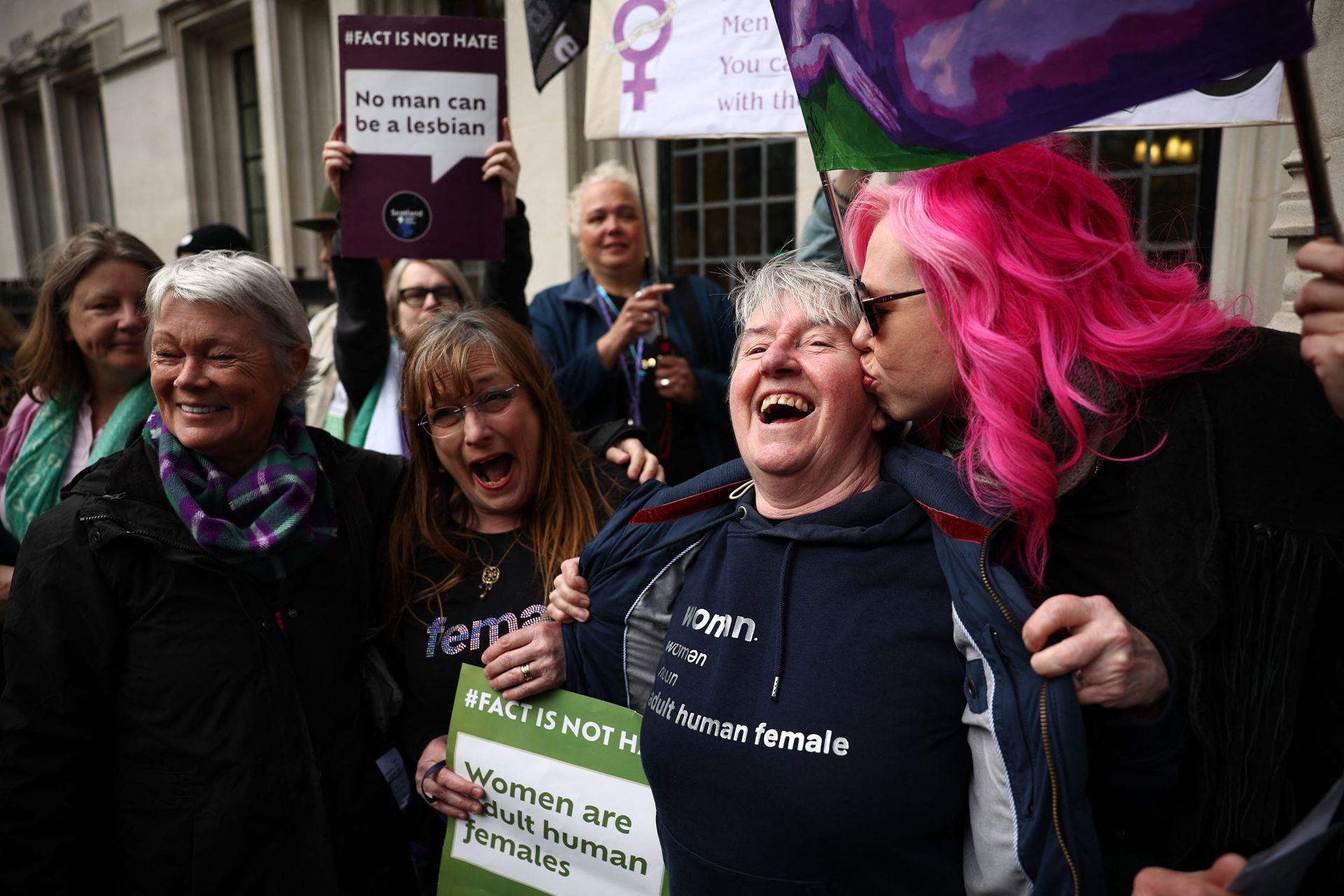 Getty Images
Getty ImagesLord Reed called on all parties to respect the “dignity” of the court.
He said: “Some people will be pleased and others will be disappointed.
“Whatever your feeling may be, please respect the dignity of these courts and remain silent until the court is adjourned.”
The 2004 Gender Recognition Act states that obtaining a GRC changes a person’s sex for all purposes. However, the 2010 Equality Act says that trans people can be excluded from women-only spaces in certain circumstances.
The judges’ decision is set to have major consequences for trans people and for who can access women-only spaces such as female-only hospitals wards, prisons and refuges.
Campaign group For Women Scotland challenged the definition of a woman in Scottish legislation, which mandates 50% female representation on public boards.
For Women Scotland argued the word woman should only apply to people who are female from birth.
The Scottish Government argued that trans people with a GRC should also be included in the definition.
Delivering the judgement, judge Lord Hodge said the “central question” is how the words “woman” and “sex” are defined in the 2010 Equality Act.
He said: “Do these terms refer to biological woman or biological sex, or is a woman to be interpreted as extending to a trans woman with a Gender Recognition Certificate?
“The unanimous decision of this court is that the terms woman and sex in the Equality Act 2010 refer to a biological woman and biological sex”.
He explained that the court found “incoherence” and “impracticalities” in the Scottish Government’s interpretation of the Equalities Act. He said Holyrood’s guidance was “incorrect” and the challenge to that guidance succeeded.
“On one hand, women who make up one half of our population have campaigned for over 150 years to have equality with men – that work still continues. On the other hand, we have a vulnerable and often harassed community struggling against discrimination and prejudice as they seek to live their lives with dignity,” Lord Hodge said.
The Scottish Government said the Supreme Court “rightly” counselled against reading this judgment as a triumph of one or more groups in our society at the expense of another.
“It is not,” the government said.
“The ruling gives clarity between two pieces of relevant legislation passed at Westminster. We will now engage on the implications of the ruling. Protecting the rights of all will underpin our actions.”
The full written judgement can be read here.
‘Victory for biology, for common sense’
Kate Barker, chief executive of the LGB Alliance charity, said the Supreme Court ruling “delivers huge benefits to women and to lesbians”.
She said: “This is a victory for biology, for common sense, for reality.
“It’s definitely a victory for lesbians as well, and it was specifically mentioned in the case how lesbians have been disadvantaged by this idea that maybe a man could be a woman and could be a lesbian if he had a certificate, and the ruling just absolutely blew that out of the water.
“It was really fair, it was really clear and it delivers huge benefits to women and to lesbians in particular, so I’m absolutely we’re all thrilled about it.”
Ms Barker said the ruling would cut out a lot of expensive and time-consuming court cases in the future “because it sets a clear precedent”.
The UK Government spokesman said: “This ruling brings clarity and confidence, for women and service providers such as hospitals, refuges, and sports clubs.
“Single-sex spaces are protected in law and will always be protected by this Government.”
Harry Potter author JK Rowling also welcomed the news. Posting to X on Wednesday she said: “It took three extraordinary, tenacious Scottish women with an army behind them to get this case heard by the Supreme Court and, in winning, they’ve protected the rights of women and girls across the UK.”
The equalities watchdog for Great Britain welcomed the ruling as having addressed challenges around single-sex spaces.
Baroness Kishwer Falkner, chairwoman of the Equality and Human Rights Commission (EHRC), said: “We are pleased that this judgment addresses several of the difficulties we highlighted in our submission to the court, including the challenges faced by those seeking to maintain single-sex spaces and the rights of same-sex attracted persons to form associations.”
‘Deeply concerning ruling for human rights’
The Scottish Greens have said the Supreme Court verdict will leave many trans people and their loved ones “deeply anxious”.
“This is a deeply concerning ruling for human rights and a huge blow to some of the most marginalised people in our society,” said MSP Maggie Chapman.
“Trans people just want to be able to live their lives like any of us, without the fear of prejudice or violence, but today they have been badly let down.”
Vic Valentine, the manager of Scottish Trans, a gender identity and gender reassignment equality and rights group, said the judgement was “extremely shocking”.
“It feels like a big set back for trans people’s equality and human rights today,” Mr Valentine said.
“The judgement seems to say there will be sometimes where trans people can be excluded from both men’s and women’s services, but its not clear where we’re then supposed to go.”
He added: “I’m not sure how that kind of judgement is one that creates a fair and equal society for everybody.”
Ultimately, Mr Valentine said trans people are worried that the judgement might have “really significant impacts” on how they go about living our daily lives.
“Ultimately, we need to piece together how trans people should be fairy included in services and spaces that everyone needs to use,” he said.
“We’re a small group in society, but we are here and we need to go about our lives in safety and there’s got a be a way for us to do that.”
How did we get here?
The challenge began with the Gender Representation on Public Boards (Scotland) Act 2018, which intended to increase the proportion of women on public boards in Scotland.
In 2022, For Women Scotland successfully challenged the original act over its inclusion of trans women in its definition of women.
The Court of Session in Edinburgh ruled that changing the definition of a woman in the act was unlawful as it dealt with matters falling outside the Scottish Parliament’s legal competence.
Following the challenge, the Scottish Government dropped the definition from the act and issued revised advice for public bodies on how to comply with the law.
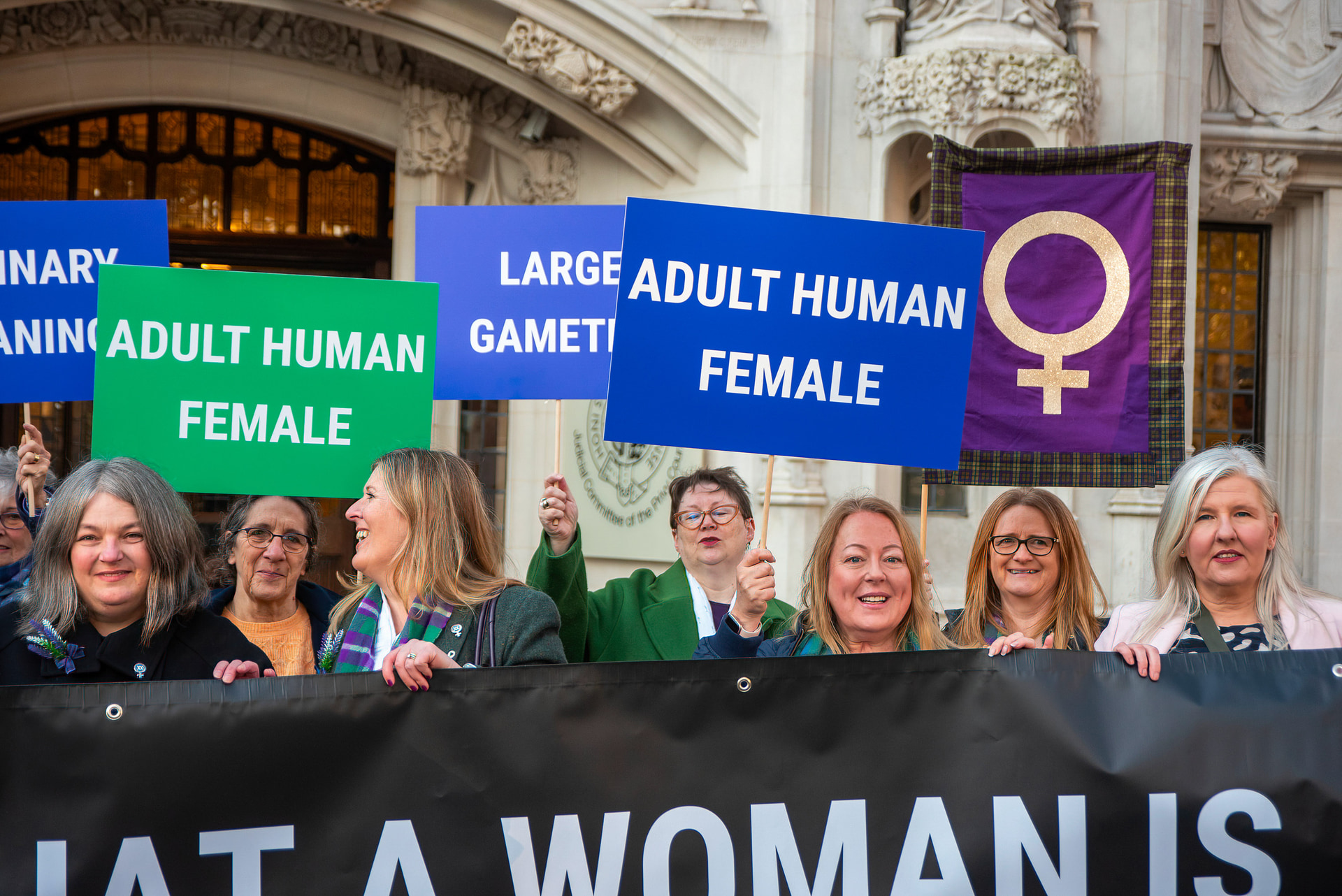 Getty Images
Getty ImagesThe new guidance stated that under the 2018 Act the definition of a woman was the same as that set out in the Equality Act 2010 and that a person with a GRC recognising their gender as female had the sex of a woman.
For Women Scotland challenged this revised guidance on the grounds that sex under the Equality Act referred to its biological meaning and said the Government was overstepping its powers by effectively redefining the meaning of “woman”.
That challenge was rejected by the Court of Session’s Outer House on December 13, 2022. For Women Scotland appealed the decision and the Inner House upheld the rejection on November 1, 2023.
For Women Scotland then once again appealed the ruling, taking it all the way to the UK Supreme Court in London.
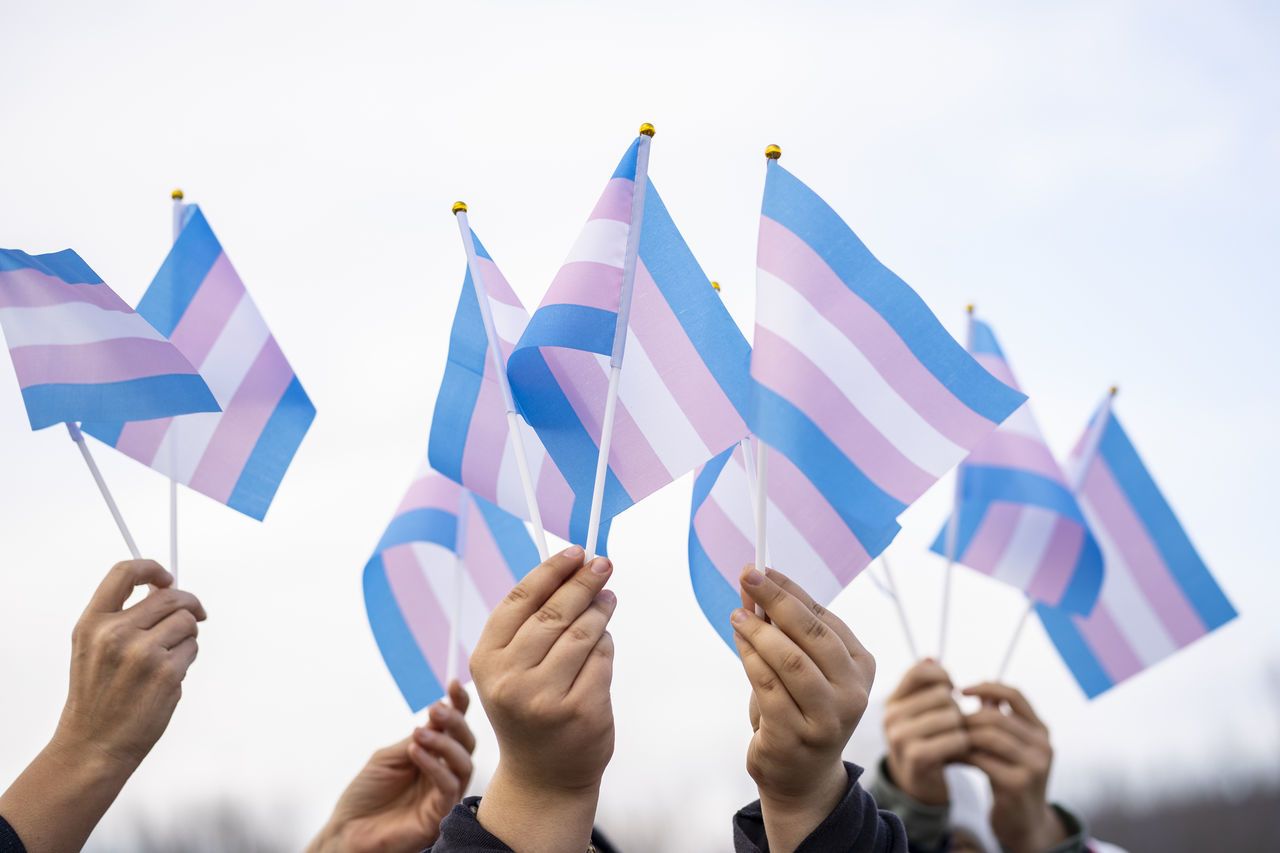 iStock
iStockWhen the group’s legal argument was published ahead of the appeal in November, For Women Scotland director Trina Budge said the ramifications of the case were “far-reaching” and she believes “all sex-based rights protected by the Equality Act are at risk”.
“Not tying the definition of sex to its ordinary meaning means that public boards could conceivably comprise of 50% men, and 50% men with certificates, yet still lawfully meet the targets for female representation,” Ms Budge previously said.
“The stakes are high and the court’s decision will have consequences for everyday single-sex services such as toilets and hospital wards.”
She said the case will determine whether a pregnant woman with a GRC is entitled to maternity leave, what it means to be same-sex attracted, and whether someone with a GRC is entitled to join same-sex groups.
“Trans rights are protected under the separate category of gender reassignment but to fully guarantee women’s rights it is increasingly clear that a consistent, biological and factual understanding of sex is the only workable solution,” Ms Budge previously said.
Follow STV News on WhatsApp
Scan the QR code on your mobile device for all the latest news from around the country


